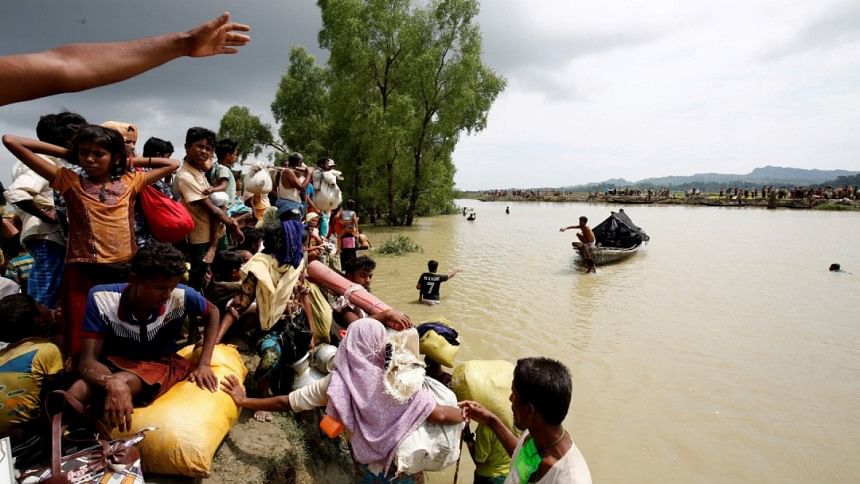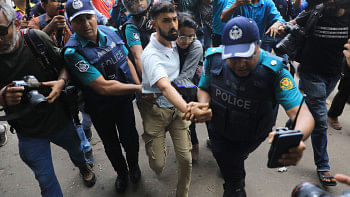Myanmar must grant Rohingyas citizenship

UN Secretary-General António Guterres' visit to the Rohingya camps in Bangladesh and subsequent statements reaffirm the need to address the fundamental issue at the heart of the Rohingya crisis—that is citizenship. Myanmar has not even begun the repatriation process despite signing a bilateral deal with Bangladesh in November last year.
The secretary-general has also reiterated what we have been saying all along: the need for the international community to unite and take a strong stance against Myanmar's state-sponsored campaign of denying an ethnic minority, who have been rendered stateless at the stroke of a pen, their basic rights.
But calls for international pressure so far have only had an effect insofar as UN agencies' access to Rakhine State is concerned as a tripartite MoU between Myanmar, UNHCR and UNDP has been reached—that too almost a year after the latest round of influx of Rohingya refugees into Bangladesh. But the international community at large has not stepped up to press home the case of Rohingyas' citizenship as Myanmar is yet to amend its discriminatory 1982 Citizenship Law.
We would like to emphasise that any solution to paving the way for the recognition of the rights of an entire people must not be bogged down by semantics. We cannot allow Myanmar to use one pretext after another to prolong the repatriation process and bury the issue of Rohingya citizenship under manufactured issues. Bangladesh, despite being resource-constrained, has been doing its part to provide shelter, food and aid to Rohingya refugees. And it's time that the international community and world leaders realised that it is due to the lack of any substantive international action that has allowed Myanmar to enjoy impunity for so long.

 For all latest news, follow The Daily Star's Google News channel.
For all latest news, follow The Daily Star's Google News channel. 








Comments